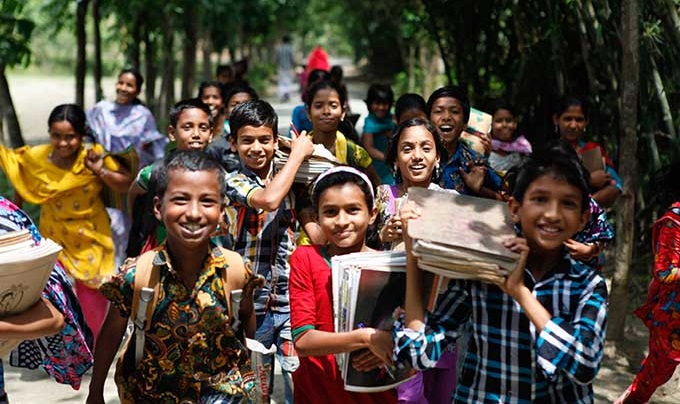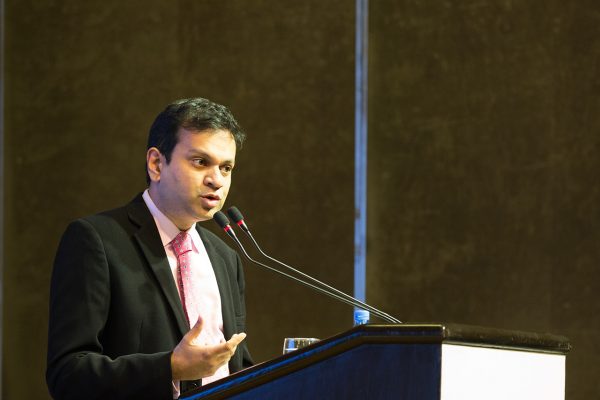Beyond the red light: How BRAC works with socially-neglected groups
Reading Time: 3 minutes
Taking on the challenge of reaching out to children of families who face social exclusion, BRAC’s education programme has reached out to the children of sex workers. My visit to a school in Douladia showed me what it means to work with a group that is socially neglected.
Taking on the challenge of reaching out to children of families who face social exclusion, BRAC’s education programme has reached out to the children of sex workers. My visit to a school in Douladia showed me what it means to work with a group that is socially neglected.
With 1,500 sex workers, Douladia Ghat is known for one of the few registered brothels in the country. Besides BRAC, there are a few other NGO schools, striving to give the children of sex workers the chance to follow their own dreams. BRAC’s primary schools are the only free schools in the area. Like thousands of its other schools spread across Bangladesh, BRAC offers a second chance at education for those who have dropped out or have never been in the formal education system.
Crossing the Padma River on a ferry, we headed into a one-room structure, which looked no different from any other BRAC school. Located just outside the boundaries of the red light area, it also enrols children from regular families. Children of sex workers are sometimes called ‘those from the inside’. Despite the jarring label, it was hard to tell the difference as all the children laughed, studied and played together in the classroom. There are currently 10 children of sex workers studying in this particular school. Talking to them, it was easy to see they had the same aspirations akin to any child their age.
The only exception to how this particular school runs is the special attention paid to the ‘inside’ children, keeping an eye on any behavioural and psychological issues that may have to be addressed with extra sensitivity. For this, training is provided to the teachers.
Outside the school, we were greeted by a group of women from outside the red light area. We observed some interesting aspects about the kind of relationship the community here shares with the children of sex workers.
Mothers who do not wish to keep their children with them inside the walls of the brothel, sometimes choose an alternative and feasible option: they put the child under the care of families living outside of the brothel in exchange of money. In some cases, it is the father’s family that take the child in.
But this does not mean that the mother stops being the child’s guardian. They meet their children outside the red light area and are the ones to attend the monthly parents’ meeting at the school. Some women of the village share how they grew up with children of sex workers when their parents took upon the responsibility to raise them.
Inside the brothel, I met a sex worker, Sheuli (name has been changed for anonymity), whose child studies in the BRAC school. A one-bedroom, tin-shed house holds all her possessions including pictures of her two children and their father.
Back at her village, no one knows about her profession. After her father abandoned the family, her mother had no option but to come to the brothel for survival. Sheuli had come to take her mother away only to come back a few years later to become a sex worker herself. After bearing two children from the same man, she now lives on her own as a ‘madam’ in the brothel, presiding over sex workers and no longer serving clients. Her children, like many others, live with their father’s family in exchange for money to cover their living expense.
Sheuli tells us that she plans to continue this work for as long as her children finish their education and have settled into their own lives. She also wants to have enough savings to be able to marry her daughter off to a good family.
Tucked away from the mainstream society, the brothel in Daulatdia Ghat is one of the most deprived communities in Bangladesh. Schools are perhaps the best place to start; they can be the havens that allow children of Daulatdia to look beyond the grim walls and to a future that they deserve.
Sumaiya Haque is a deputy manager at BRAC Communications.






